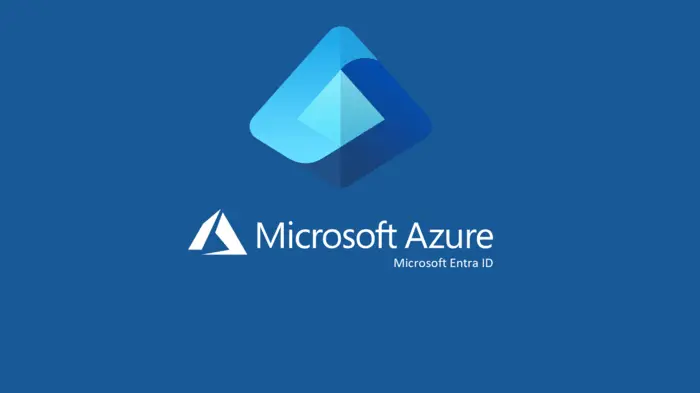15
+
YEARS OF
EXPERIENCE
1000
+
SUCCESSFUL
Projects
80
+
Satisfied
Clients

Entra ID Support Services: Secure Your Digital Identity with TechCloud IT Services L.L.C.
At TechCloud IT Services L.L.C., also known as Cloud Technologies, we specialize in providing top-notch Entra ID Support Services to businesses in Dubai. Entra ID, a key component in identity and access management, is crucial for managing user identities, securing access, and ensuring smooth operation of IT environments. As organizations increasingly rely on Entra ID for robust identity management and security, having expert support is essential to maximize its capabilities and address any issues that may arise.
Introduction
Our Entra ID Support Services offer comprehensive solutions to ensure that your identity management system operates efficiently, securely, and in alignment with your business needs. We provide end-to-end support, from initial setup and configuration to ongoing management and troubleshooting, tailored specifically for businesses in Dubai. Our experienced team ensures that your Entra ID environment is optimized for performance, security, and compliance.







Why Entra ID Support Services are Vital for Your Organization
- Seamless Setup and Configuration
Implementing Entra ID requires precise setup and configuration to integrate smoothly with your existing IT infrastructure. Our Entra ID Support Services include expert assistance with initial setup, configuration, and integration. We ensure that Entra ID is correctly configured to manage user identities, access controls, and authentication processes effectively.At TechCloud IT Services L.L.C., we handle the entire setup process for businesses in Dubai, ensuring that Entra ID integrates seamlessly with your systems and meets your organizational requirements. Our team ensures that your Entra ID environment is properly configured for optimal performance and security. - Proactive Monitoring and Management
Continuous monitoring and proactive management are crucial for maintaining the health and security of your Entra ID environment. Our Entra ID Support Services include 24/7 monitoring to detect and address potential issues before they impact your operations. We provide ongoing management to ensure that your Entra ID system operates smoothly and efficiently.With TechCloud IT Services L.L.C. managing your Entra ID environment, businesses in Dubai benefit from reliable and responsive support, ensuring that any issues are quickly identified and resolved to minimize disruptions. - Advanced Security and Compliance
Security and compliance are top priorities when managing user identities and access. Our Entra ID Support Services include implementing and managing advanced security measures such as multi-factor authentication (MFA), conditional access policies, and data protection controls. We ensure that your Entra ID environment is secure and compliant with industry regulations and standards.At TechCloud IT Services L.L.C., we conduct regular security audits and compliance checks to protect your Entra ID environment from threats and ensure that it adheres to all necessary regulatory requirements. Our services help businesses in Dubai maintain a secure and compliant identity management system. - User Support and Troubleshooting
Efficient management of Entra ID involves providing support to users and resolving any issues they may encounter. Our Entra ID Support Services include user support and troubleshooting to address problems related to access, authentication, and account management. We ensure that users receive timely assistance and that any issues are resolved promptly.TechCloud IT Services L.L.C. offers comprehensive user support for businesses in Dubai, helping employees with access issues, password resets, and other identity-related problems. Our team ensures that your Entra ID system functions smoothly and that users have the support they need to perform their roles effectively. - Custom Configuration and Optimization
Tailoring Entra ID configurations to fit your specific business needs is essential for maximizing its effectiveness. Our Entra ID Support Services include customizing settings and optimizing configurations to align with your organizational requirements. We ensure that Entra ID is set up to support your unique workflows and processes.At TechCloud IT Services L.L.C., we work with businesses in Dubai to develop and implement custom configurations for Entra ID, enhancing its functionality and integration with your IT environment. Our team ensures that Entra ID is optimized to meet your business objectives and support your operational needs. - Data Management and Integration
Managing and integrating data effectively is crucial for a successful Entra ID deployment. Our Entra ID Support Services include assistance with data management and integration to ensure that user data is accurately synchronized and maintained across your systems. We handle data imports, exports, and integration with other applications to ensure a cohesive identity management system.TechCloud IT Services L.L.C. provides businesses in Dubai with reliable data management and integration support, ensuring that your Entra ID environment is well-integrated with your existing systems and applications. - Scalability and Adaptation
As your organization grows, your Entra ID needs may evolve. Our Entra ID Support Services are designed to scale with your business, providing the flexibility to adapt to changing requirements. Whether you’re adding new users, expanding your IT infrastructure, or implementing new features, we offer support that grows with your organization.At TechCloud IT Services L.L.C., we ensure that businesses in Dubai receive scalable support for their Entra ID environment, allowing them to confidently expand and adapt their identity management system as their organization evolves. - Detailed Reporting and Analytics
Monitoring and analyzing the performance of your Entra ID system is crucial for making informed decisions and optimizing its use. Our Entra ID Support Services include detailed reporting and analytics to provide insights into user activity, access patterns, and system performance. We deliver regular reports and dashboards that help you monitor and manage your Entra ID environment effectively.TechCloud IT Services L.L.C. provides businesses in Dubai with actionable insights and data-driven recommendations, enabling you to make informed decisions and optimize your Entra ID deployment for maximum efficiency. - Disaster Recovery and Backup Solutions
Ensuring the availability and recoverability of your Entra ID environment is essential for minimizing the impact of potential disruptions. Our Entra ID Support Services include disaster recovery and backup solutions to protect your identity management system and data. We implement robust backup systems and recovery plans to ensure that your Entra ID environment can be restored quickly in case of data loss or system failure.With TechCloud IT Services L.L.C., businesses in Dubai benefit from reliable disaster recovery solutions and backup plans, ensuring that your Entra ID environment remains protected and recoverable in any situation.
IT Support Services
TechCloud IT Services offers comprehensive and dependable IT support solutions throughout the United Arab Emirates. We cater to all your IT needs, encompassing cloud services, user support, and infrastructure management.Office 365 IT Support
Get expert Office 365 IT support for email management, security, collaboration tools, and seamless cloud integration for businesses.Cloud IT Support
Expert cloud IT support services for seamless migration, security, optimization, and infrastructure management tailored for business needs.
Why Choose TechCloud IT Services L.L.C. for Entra ID Support Services in Dubai?
At TechCloud IT Services L.L.C., we are committed to delivering exceptional Entra ID Support Services that help businesses in Dubai achieve optimal performance, security, and efficiency with their identity management systems. Our experienced team provides comprehensive support and management to ensure that your Entra ID environment meets the highest standards of reliability and effectiveness.





Enhance Your Entra ID Experience with Expert Support
Partner with TechCloud IT Services L.L.C. for Entra ID Support Services and experience seamless, secure, and efficient identity management. Contact us today to learn how our expert support services can benefit your business in Dubai.
Partner with TechCloud for Entra ID Success
TechCloud IT Services L.L.C. is your trusted partner for Entra ID support in Dubai. Our expertise and commitment to customer satisfaction ensure the success of your identity management strategy.
Contact us today to learn how our Entra ID support services can benefit your organization.
As a result of increasing number of business expanding to the United Kingdom market we are offering services of Entra ID Support Services in London

answer time
satisfaction
score
on initial call
same business
day





